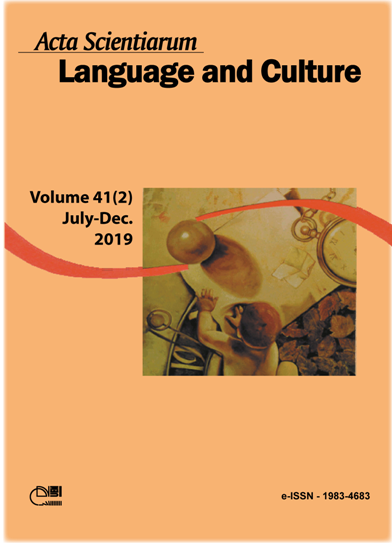Language and ideology: glossopoesis as a secondary narrative framework in Le Guin’s The dispossessed
Résumé
Ursula K. Le Guin’s The dispossessed (1974) has been read from a multiplicity of angles that mostly vary from focusing on the characters to highlighting the anarchist ideology that the story preaches. In this article, we promote a distinct analysis, which, despite also approaching the ideological themes in the novel, centres on the use the author makes of glossopoesis (creation of artificial languages) through Pravic, Iotic and Niotic. Bourdieu (1991), Freedman (2000), Conley and Cain (2006), Edward James (2003) and Ken Macleod (2003) critically motivate our discussion. As a result, we demonstrate how glossopoesis plays a significant representational role in the plot as a secondary narrative framework intended to communicate the author’s beliefs both on language and politics.
Téléchargements
DECLARAÇÃO DE ORIGINALIDADE E DIREITOS AUTORAIS
Declaro que o presente artigo é original, não tendo sido submetido à publicação em qualquer outro periódico nacional ou internacional, quer seja em parte ou em sua totalidade.
Os direitos autorais pertencem exclusivamente aos autores. Os direitos de licenciamento utilizados pelo periódico é a licença Creative Commons Attribution 4.0 (CC BY 4.0): são permitidos o acompartilhamento (cópia e distribuição do material em qualqer meio ou formato) e adaptação (remix, transformação e criação de material a partir do conteúdo assim licenciado para quaisquer fins, inclusive comerciais.
Recomenda-se a leitura desse link para maiores informações sobre o tema: fornecimento de créditos e referências de forma correta, entre outros detalhes cruciais para uso adequado do material licenciado.




















6.png)









